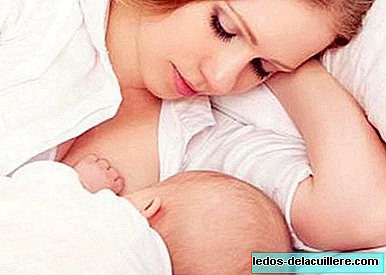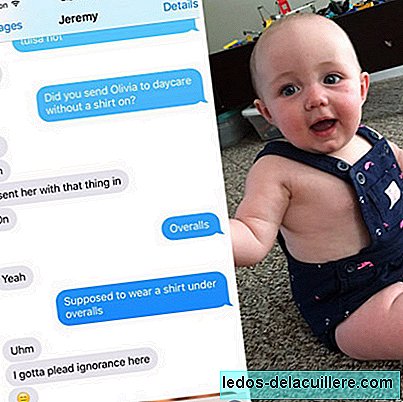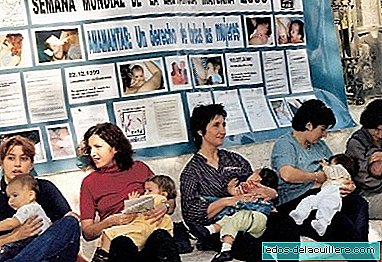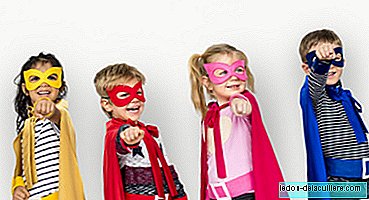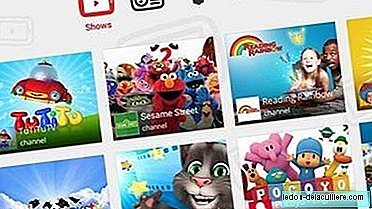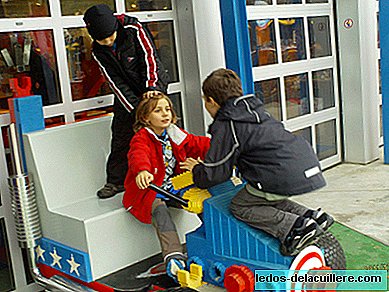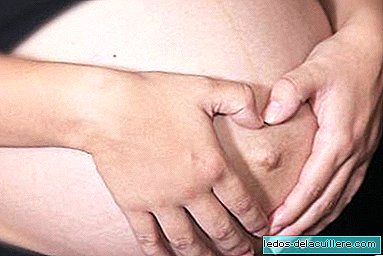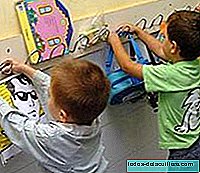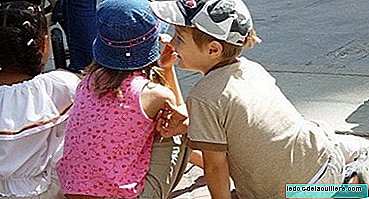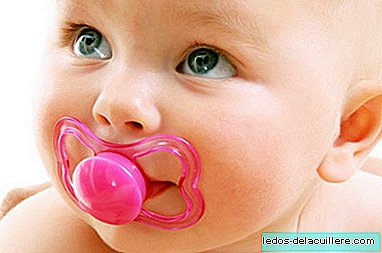
I still remember my aunt taking my cousin's pacifier off the floor and sucking it before giving it back. I have never been able to use my saliva to clean the pacifier of my children, perhaps because I have always tried to take another one when we went out or because my aunt's habit produced a certain rejection.
Now, a new study of the Henry Ford Health System in Detroit (United States) has come to light that seems to contradict me: according to its conclusions, Cleaning the pacifier with saliva could help prevent allergies and asthma in babies. But it doesn't mean it's good to do it, the Spanish Association of Pediatrics advises against it, we explain why.
What does the study say?
The research, presented at the American College of Allergy, Asthma and Immunology (ACAAI) meeting, has revealed that babies whose parents cleaned their pacifier with saliva had a lower level of Ig antibodies that are related to the development of allergies and asthma .
The study authors explain that these results may be due to the parents transmitting healthy oral bacteria in their saliva, which help an early immune development in the little one.
They interviewed 128 mothers of babies during their first 18 months of life to find out how they cleaned their child's pacifier: sterilizing it in boiling water or in the dishwasher, cleaning them with soap and water and sucking it. Among the three methods, 30 mothers sterilized it, 53 cleaned it with soap and water and nine sucked the pacifier.
The AEP advises against sucking the baby's pacifier
Babies and more has consulted the results of the study with the Dr. Mercedes Escarrer, president of the Spanish Society of Clinical Immunology, Allergology and Pediatric Asthma of the Spanish Association of Pediatrics, who has told us that:
"The sample is very small and develops in too little time to prove its conclusions."
The allergist explains that this study seems to be based on the "Hygienist Theory" that defends that "While our body defends itself against bacteria and parasites, it is not used to produce allergies, which are nothing more than an exaggerated response of our immune system."
According to this theory, the doctor adds:
"Children living on farms, environments more exposed to parasites, develop less allergies."
Dr. Escarrer clarifies that she cannot affirm that the conclusions of this American study are wrong, but that more forceful investigations are needed to confirm the immunological power of maternal saliva for the baby.
"We believe that the baby needs hygienic measures, including washing the pacifier with soap and water and not with saliva, since through it bacteria and diseases are transmitted".
A theory with scientific endorsement
But it is not the first time that the subject of immunity and pacifiers is studied. Already in 2014, an investigation conducted by the University of Göteborg (Sweden) published in the journal 'Pediatrics', revealed that "Sucking the baby's pacifier before giving it to him can protect against the early development of eczema and asthma."
 In Babies and more And now yes, now it is advisable to clean the baby's pacifier through the saliva of their parents, according to the latest study
In Babies and more And now yes, now it is advisable to clean the baby's pacifier through the saliva of their parents, according to the latest studyIn this case, the American Pediatric Association explained that this finding supports the "hygiene hypothesis" and the role of initial (birth) and subsequent (oral) exposure to microbes in modulating immune responses in a way favorable.
The AAP notes that sharing maternal saliva can replicate the saliva and oral microbes that the mother probably shares before chewing food to feed the baby, a practice that is now rarely observed in westernized societies, where processed and sterile baby foods are available.
A practice not recommended

And even with its possible benefits, clean the baby's pacifier with our saliva, not recommended, as Dr. Mercedes Escarrer assured.
And like her, the Swiss researchers and the AAP also point out that the results do not prove that the pacifier cleaning method protects children, since there could be other factors involved and other explanations to decrease the risk of allergy. However, it is tested your risk in the transmission of caries and other infections We can suffer without being aware.
 In Babies and more Clean the baby's pacifier with your mouth, yes or no?
In Babies and more Clean the baby's pacifier with your mouth, yes or no? Excessive hygiene is not good either
It is also true that experts have suggested on occasion that children who grow up in an excessively clean environment are much more likely to suffer from some type of allergy, since their immune system needs minimal doses of germs to be active and healthy.
A little dirt can be good because while babies explore around them, your immune system trains to recognize the true infectious agents, and your body is populated with friendly bacteria that will protect and help your body work.
From that same opinion is our fellow nurse in Pediatrics, Armando Bastida, who explains:
"For a long time it was thought that the best way for a child to be healthy was to avoid germs and dirt. It has been seen that no, that this is not good because then the immune system has nothing to fight against and there is a risk of producing allergies and autoimmune diseases (defenses fight against cells of the body itself). "
But as parents we know where the limit is, right? That is why all these studies serve to remind us that we do not have to keep children in a bubble, but that we must let the common sense: Avoid sucking the baby's pacifier, and only use this 'technique' in a timely case if we do not have a spare pacifier or a tap nearby to wash it.
Photos | iStock
In Babies and More | When to remove the pacifier to avoid oral problems due to prolonged use ?, Giving antacids and antibiotics to babies under six months could increase the risk of allergies


